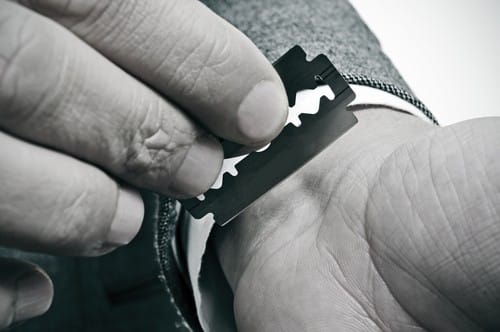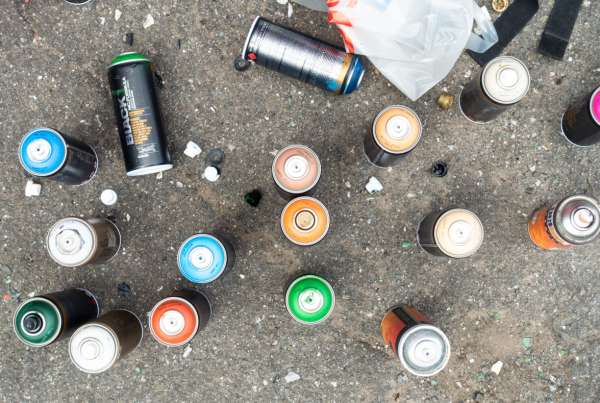It’s difficult to treat teen drug abuse, especially when a drug has its hooks firmly in a teen’s head. Just like everybody else, they need support – and it’s often the parents, not the peers or the therapists or the doctors, who help their kids stay sober the most. How a parent interacts with their child is important, as is their parenting style.
What Are Parenting Styles?
Parenting styles are archetypes of parental philosophies characterized by certain behavior and viewpoints that parents share. For example, an authoritarian parent might overtly control their teen’s behavior and activities, emphasizing obedience above other qualities in their relationship with their child. An authoritarian parent will punish their child for talking back and refuse to engage in a conversation with them when questioned. Children are to take orders and comply unquestioningly until they’re old enough to stand on their own. In other words: kids should be seen, not heard. While psychologists and experts have identified several different parenting styles over the years, most of them can be split between the following four:
- Authoritarian: As explained previously, authoritarian parents command their children. They are restrictive and enforce their rules with punishment.
- Authoritative: Authoritarian parents provide limits and rules for their children but take the time to explain those restrictions when asked. They also work hard to foster a positive relationship with their children by taking an interest in what they do and what they like and encouraging their growth.
- Permissive: Permissive parents have a “kids will be kids” attitude towards misbehavior and generally do not enforce their rules or may not even provide clear boundaries for their children.
- Uninvolved: Uninvolved parents are neglectful and show neither care nor particular disdain for their children. Some are simply severely overworked or don’t really know how to take care of their child’s emotional needs.
Note that these archetypes describe a general parenting style and are not necessarily rulebooks. An authoritarian parent may be relaxed at times, and an authoritative parent may resort to more punishment than necessary out of frustration. In contrast, a permissive parent may occasionally be adamant about certain rules. Parenting styles help us interpret how certain qualities and relationships between parents and children affect the children’s choices and behaviors both now and later in life and their choice in peers and partners or their choices regarding substance use.
Why Parenting Styles Matter
Drugs like alcohol, cocaine, and heroin are inherently addictive, so it’s usually the circumstances that lead to initial use that play the greatest role in a teen’s potential substance use problem. While no substance use disorder starts with hit number one, or the first drink, most drugs prime the brain for another session because they contain substances that very closely mimic – and even overpower – ones our own brain produces to incentivize and promote certain behavior, from eating to procreation.
In that sense, half of the battle against addiction keeps kids from using drugs to begin with. The resilience against addiction seems to increase with age, as young people using drugs are more likely to form a lasting substance use issue than if they had the first contact with a drug well into their mid-20s. Peer pressure is often blamed on why and how kids begin experimenting with drugs at home – but research shows that parents play an even greater part.
Parenting styles affect the kind of relationship a child has with their parents – and in turn, with others around them. A poor relationship can lead to trust issues, early self-reliance, an unbalanced mental state, and isolation. Parents who are too uninvolved or enforce rules too rigidly may cause their children to seek out unhealthy attachments or struggle massively with social interaction, especially anger management, adaptation, verbal expression, and healthy coping.
Addictive drugs cause addiction of their very own accord. Still, emotional and social factors make substance use disorder more or less likely, even after a teen was exposed to drugs. A healthy relationship – an authoritative one – with one’s parent more often translates into better relationships with other people, improved social skills, better coping skills, higher self-esteem, and a lower risk of getting addicted. Addiction usually affects the vulnerable the most, after all.
But just as parents can have a significant impact on their children’s behavior, even well into their rebellious teen phase, so too do they play a crucial role in preventing teen drug abuse. Parents with a positive, strong bond to their children will have an easier time helping them through their addiction than a parent who is too harsh or too distant. Punishing or neglecting a child for their choices and experiences will only reinforce negative behavior and make it that much harder to recover from a substance use problem.
What About Peer Pressure?
Despite a drop in numbers for most illicit drugs among adolescent users during the pandemic, COVID-19 saw alcohol and cannabis use rise among teens as millions of young people struggling with social isolation. About half of surveyed teens reported using these drugs alone, without digital nor face-to-face contact with peers. Peer pressure has always played some part in teen drug abuse, but it’s a case of putting the cart before the horse in many cases. Peer choices are often driven by a teen’s general attitude and relationship with their parents, as are drug choices.
Peers with a positive relationship with their parents are also far more resilient to peer pressure. While wanting to be popular can be seen as a valid motivation for drug use and experimentation, it usually does not weigh as heavily into a teen’s relationship with their parents. This does not change significantly until after the teen years, around the age most kids move away or are beginning to form long-term bonds of their own.
The Importance of Protective Factors
Addiction risk factors are a common point of discussion when discussing teen drug abuse – but it’s just as important to highlight protective factors. These can also play a role in substance use cessation and long-term recovery. Alongside a healthy relationship with their parents, other protective factors for teens include:
- Healthy social interaction with other teens.
- Having a strong attachment to the neighborhood, feeling safe and comfortable at home.
- Having parents that are involved in a child’s interests and activities.
- Enforced anti-drug use policies at school.
- And more.
A parent’s love might not be enough to rout addiction, but it is an important component for many teens.









